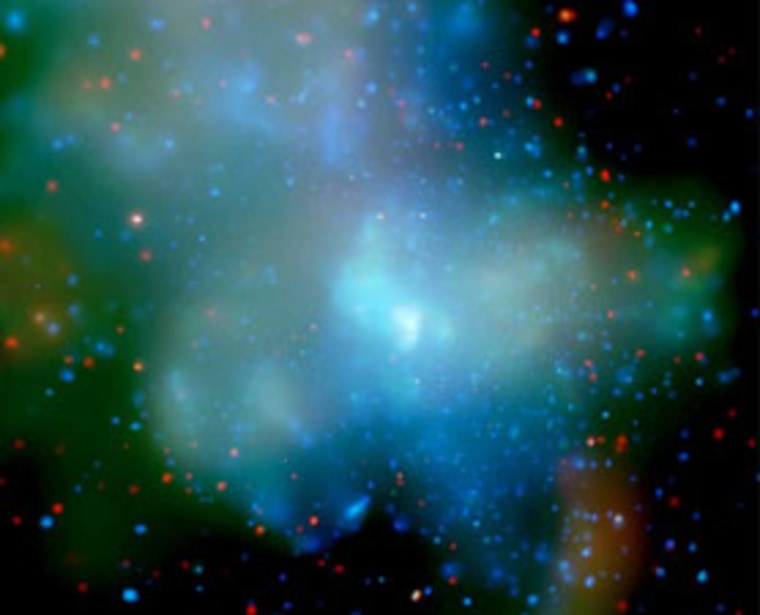Could a neutrino — an electrically neutral and nearly mass-free sibling to the electron — have triggered dark energy, the anti-gravity force discovered just over a decade ago?
That's the latest idea from a team of theoretical physicists who suggest that dark energy was created from neutrino condensate in the split second after the universe's birth 13.7 billion years ago.
The idea sprang from calculations showing that the density of dark energy is comparable to the value of neutrino mass, said lead researcher Jitesh Bhatt, with the Physical Research Laboratory in Ahmedabad, India.
Dark energy, an unknown force that is accelerating the expansion of the universe, is the leading cosmological mystery of modern-day science.
It was discovered in 1998 after astrophysicists noted that supernovae — the exploded remains of massive stars — showed an accelerated rate of expansion in the last 2 billion years or so when compared to older epochs.
Explanations for dark energy fall into two basic camps: those theories that add a new physical entity or those that change the laws of gravity, said Eric Linder with the University of California at Berkeley.
"If you search for 'dark energy' in just the titles (of research papers) in the past year, you will find 200 speculations on what dark energy is," Linder wrote in an email to Discovery News. "There are a great many hypotheses for dark energy. Some ties to neutrinos have been considered for the last several years, but nothing substantial has yet come out of them."
To account for the universe's observed rate of acceleration, 75 percent of the mass and/or energy of the universe has to be comprised of a gravitationally repulsive force, or dark energy.
Scientists are developing several dark energy experiments, including the NASA/Department of Energy Joint Dark Energy Mission, in an attempt to refine dark energy measurements and reveal how it operates.
"It will take much more work before we can pin down the nature of dark energy," Bhatt said. "Without knowing the nature of the dark energy, our knowledge of theoretical physics would remain incomplete."
Bhatt's research was published in last month's issue of Physical Review D.
